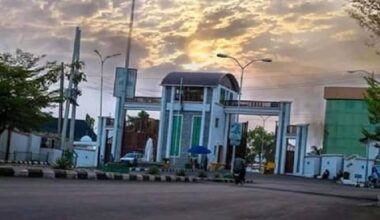What is Skill Gap?
The concept of skill gap characterizes the divergence that currently exists in what potential job prospects are required of and what is being offered. Skill Gap Analysis is a method of determining which skills and knowledge gaps exist between the workforce system in Nigeria and its students of higher learning.

On a general note, the disparity in skills of a job candidate and what employers demand takes its root from primary through the secondary and higher education system. It is obvious that students are not armed with the skills for real-life experiences but are made to focus on a rote learning technique which most times is disappointing as they seem to be taken unawares when plunged into the workforce. Such a technique is insufficient as oftentimes they seek to memorize excellently in order to get desired grades rather than getting armed with the knowledge for practical application. It is obvious that from this technique, hands-on activities, brainstorming and other real experiences are obstructed.
There is no doubt that this divergence has been in existence for years but it is becoming alarming, Hence, the pressure on employers to do more with the little they can get from employees. Higher education, according to data, is not effectively preparing students for work situations. Therefore, research has proven the need for an upskill in educational contents, concepts and curricular activities.
Why is there a Skill Gap?
It is understandable that the school system is a primary determinant of the skills gap in Nigeria by expensive fees, discrepancies in curriculum and deficiency in skills acquired in relation to what is required – other systems contribute to this gap such as the government, immediate society and direction of the economy.
Advancement is inevitable, therefore, new fields are created, technologies advancing and newer methods being incorporated to activities in the society meanwhile learning paths are not upgraded alongside.
The administrative economy has a role to play in the increased rate of unemployment due to lack of jobs created in relevant fields. Increase in skilled jobs has also contributed to the skill gap in Nigeria where a high skill is required for a role not necessarily requiring the qualifications and abilities demanded for.
How to bridge the Skill Gap?
Skills commonly lacking include verbal communication, writing, problem solving, critical thinking, human relation, and time management, teamwork, good judgment, financial management, leadership, decision making and intelligence quotient.
In bridging skill gaps in higher institutions in Nigeria, the above skills will need to be integrated in the system. It is important this be done to bring the realness of the workforce system even while still in school.
Other ways of bridging skill gap include:
● Training on general and specific fields.
● Skill prediction and workforce insights through job fairs and exhibitions.
● Redesigning outdated curriculums to flow with advancement in the workforce system.
Goodness of bridging Skill Gap
Projected insight into the job markets.
Increased chances of excelling in employment activities.
Individual development for a greater good and beyond job environments.
Innovation.
Emmanuel Otori has over 9 years of experience working with 100 start-ups and SMEs across Nigeria. He has worked on the Growth and Employment (GEM) Project of the World Bank, Consulted for businesses at the Abuja Enterprise Agency, Novustack, Splitspot and NITDA.
He is the Chief Executive Officer at Abuja Data School.


